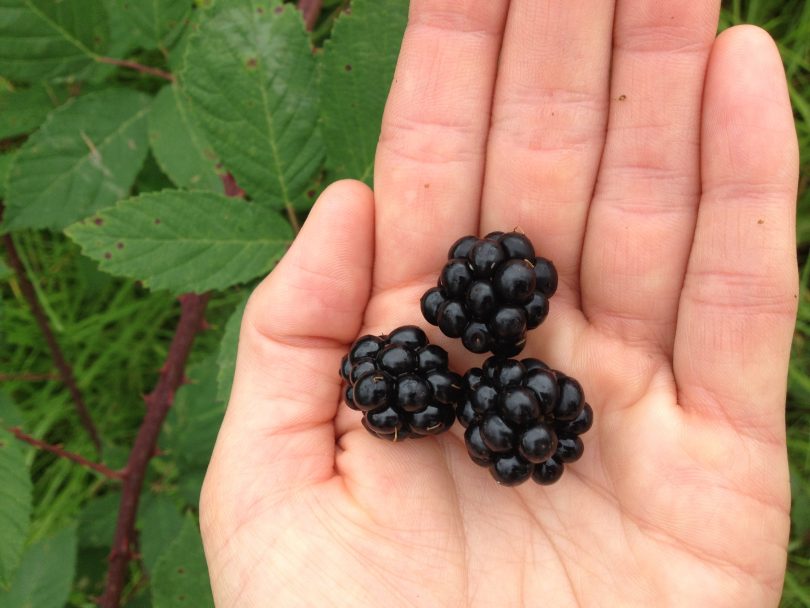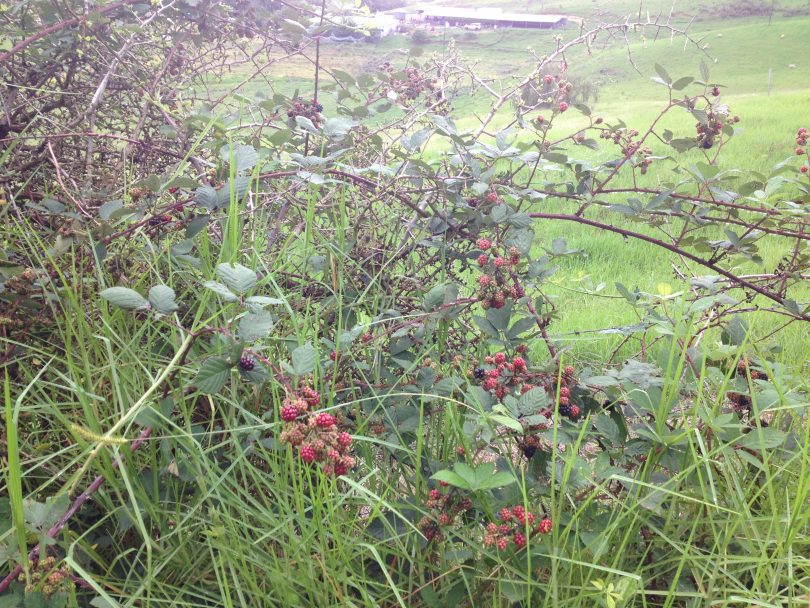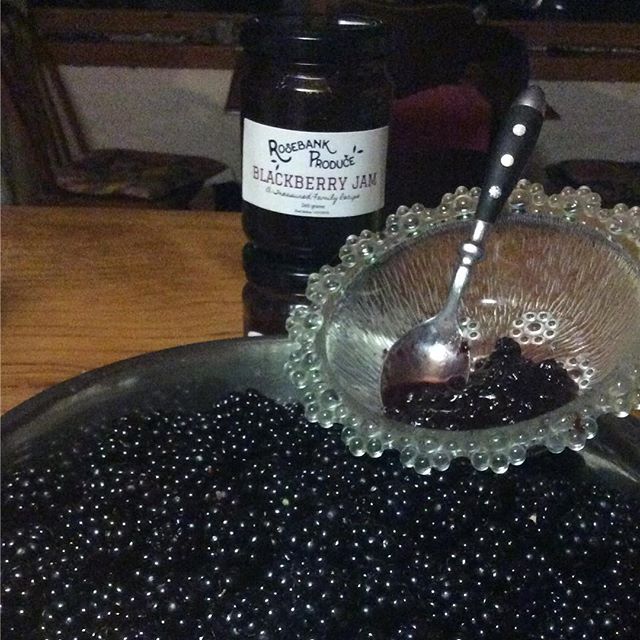
Lovers of blackberries will quickly learn how to wriggle a hand between thorns to get to the biggest, blackest fruit. Photos: Elka Wood
Blackberries are ripening now and if you’ve been tempted by this unfortunate English transport (it is said to have arrived on our shores in the early 1830’s), you’re not alone.
Birds, foxes and other animals eat the fruit and spread this notoriously difficult weed through their excrement, making it a common site along country roadways.
But what about us humans? Does gathering the fruit contribute to the spread of the weed?
Only if we’re not careful, says Far South Coast Landcare Coordinator, Chris Post, who “absolutely” eats blackberries, provided they come from a controlled source, such as a backyard bush – and as long as he can be sure the plants haven’t been treated with herbicide.
“I would be wary of picking in public places,” Post says.

Blackberries often grow on roadways, but it is best not to pick them, as council or landowners may have treated the areas along roads with herbicide.
But picking from managed blackberry bushes can be a satisfying and productive exercise in gathering food locally.
Annemieke Schneider lives on 120 acres near Whyndam and created her business, Rosebank Produce, in July 2018, supplying local restaurants with mostly foraged produce.
“I’ve got heaps of blackberries on my property,” Schneider says. “I pick buckets full. I haven’t introduced blackberries to the local cafes I deliver to yet, but I’m sure there is a market for it.”

Blackberries are ripe when they are deep black and detach easily from their stems.
But don’t let your enjoyment of the ripe fruit hinder plans to control the plant on your property – Post says that, like Lantana, blackberries can create an impenetrable thorny “wall to wall” forest which property owners often feel overwhelmed by.
“Bega Valley Shire Council has successfully used a bobcat with a mulching attachment to ‘grid’ areas of Lantana and blackberries,” Post says, “which leaves the area accessible from all sides so we can get in and treat it with herbicide.”
Understanding the lifecycle and biology of any pest you are trying to control is key to success, says Post and in the case of blackberries, slashing and use of grazing animals will keep the problem down but only root removal or poisoning will kill the plant.
“Blackberries have a unique secondary root system, making them a really difficult plant to manage,” Post explains. “When the plant is under stress, such as when it’s been sprayed, the second root system shuts down so the plant looks dead but in the second year, you’ll get vigorous growth from that system.”

A secondary root system makes blackberries hard to eliminate, says Landcare Coordinator Chris Post.
Because of this unique root system, a second annual spraying is necessary but it will be worth your time to wait until the plant is in full, vigorous growth before spraying, Post advises.
“The best time to treat with herbicide is when the sap is flowing and you’ve got lots of leaf surface,” Post says. “When the plant is flowering is a good time, or even up until April, after the plants have fruited. And don’t waste time or money on Round -Up, it won’t kill blackberries.”
Shortly after our first contact, Schneider posted on Instagram a picture of her buckets of blackberries. Her feeling about the market was spot on; she immediately received her first orders from some prominent South Coast restaurants for her foraged fruit.

Rosebank Produce in Wyndham is selling fresh blackberries as well as value-added blackberry products like this jam. Picture: Rosebank Produce Instagram.
Perhaps a widespread awareness of the blackberry as a local food source will make us more proactive in managing the plant as a priority weed as well.
Please seek advice from your local council and Landcare group to make a plan to manage areas of blackberries or any weed on your property.







